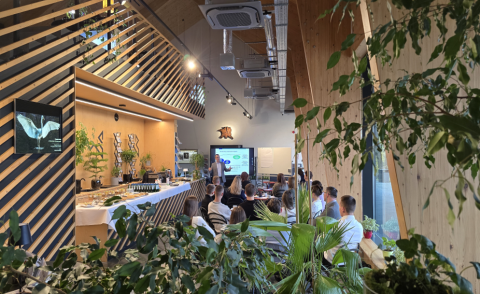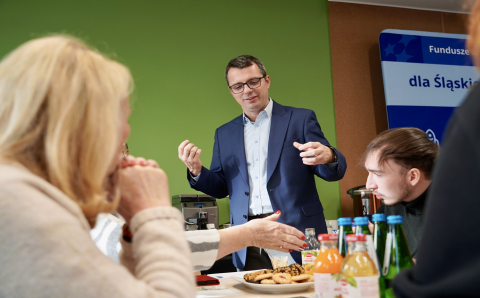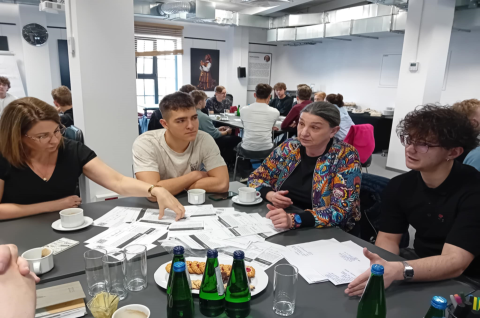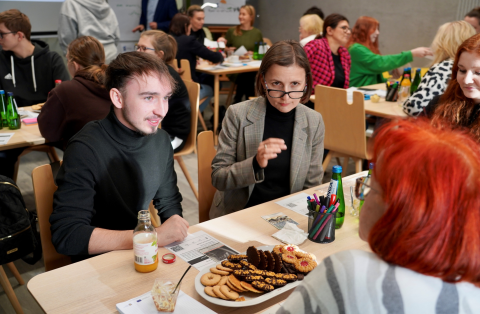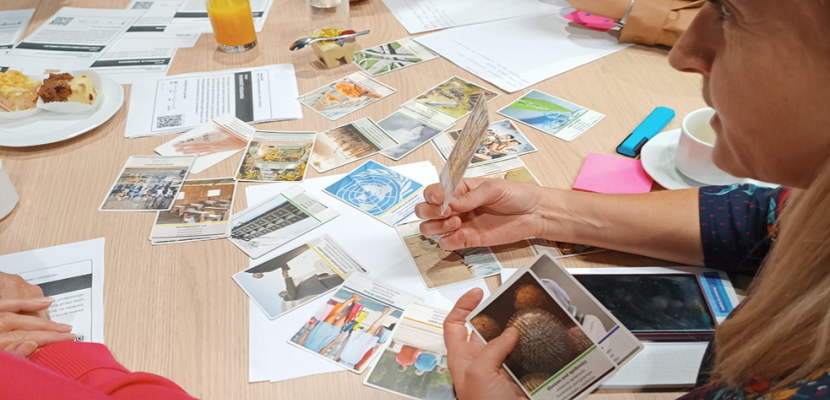
Citizens' cafés – We are transforming Silesia

About this good practice
Citizens' Cafés are a good practice introduced in response to the need for effective communication with residents about the region's transformation process and the benefits of the Just Transition Fund. The context for introducing this initiative stemmed from the need to inform, educate and actively involve local communities in the socio-economic changes taking place, inspired by a call for proposals on social inclusion in the transformation process.
The practice was implemented through the organisation of workshops in the form of citizens' cafés, held in a relaxed atmosphere over coffee and cake in facilities co-financed by EU funds. The aim of the meetings was to build intergenerational cooperation, increase awareness of participation and strengthen the need for residents to get involved in the region's transition. The discussions focused on real local issues, such as an ageing population, rapid changes in the environment, economic uncertainty, the development of green technologies, environmental awareness, flexibility in working life, cyber security.
The main beneficiaries of this practice are residents of various cities in the Silesian Province, especially those who were not previously aware of the transition and opportunities offered by the Just Transition Fund. The cafés were also attended by representatives of local government units, non-governmental organisations, universities, primary and secondary schools and senior citizens. A total of 13 meetings were organised.
Resources needed
The cafés were financed from the Fair Transition Fund. The total amount was approximately PLN 34,000.
Human resources: meeting moderator, catering. The cafés were coordinated by UMWSL employees performing their duties as part of their official responsibilities.
Evidence of success
The Civic Cafés fostered collaboration between local authorities, NGOs, and residents, resulting in actionable ideas like intergenerational cafés and community events. They raised civic awareness and encouraged local engagement. A friendly setting promoted dialogue, relationship-building, and the development of initiatives tailored to local needs, strengthening social bonds and future cooperation.
Potential for learning or transfer
Citizens' Cafés have high educational and transfer potential because they are based on a universal method of building dialogue and social engagement. They show residents that they have a real impact on changes in their environment, which increases their awareness and motivation to act. A key factor in its success is the relaxed, informal atmosphere of the meetings, which encourages open discussion and the exchange of ideas.
The model is flexible and easy to adapt to local needs — it can take the form of intergenerational, neighbourhood or themed cafés. Its effectiveness is confirmed by the fact that during the meetings, participants expressed their willingness to continue and develop similar initiatives in their communities, proposing modified forms adapted to local needs.
Further information
Images
